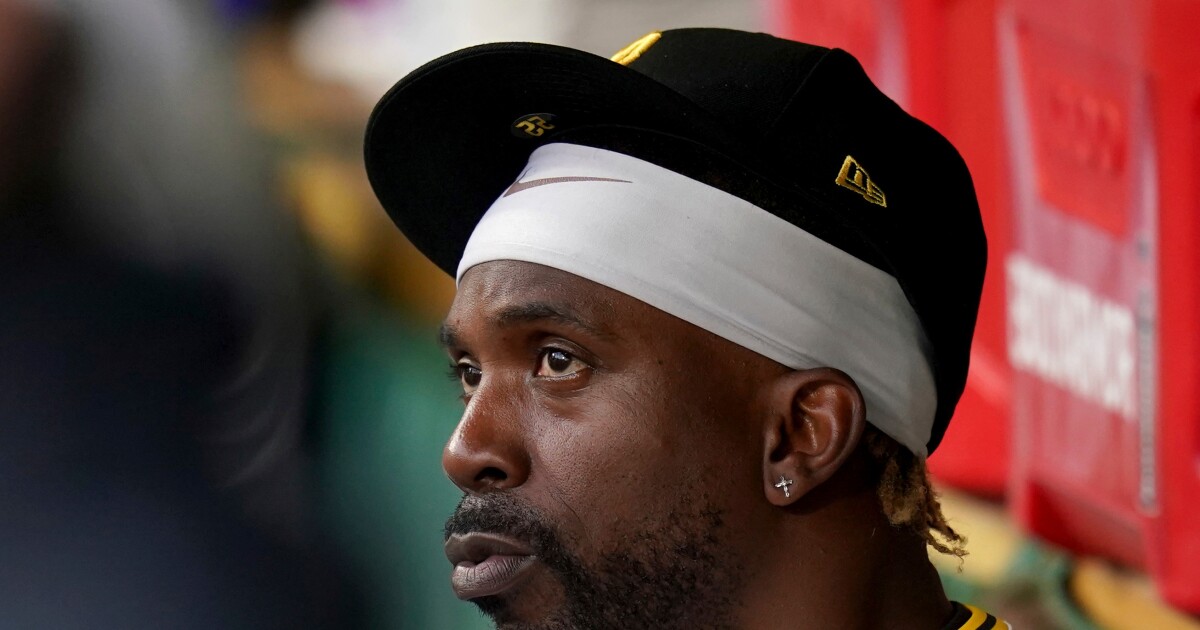Texas
Texas mother Kate Cox on the outcome of her legal fight for an abortion:

Lifelong Texans Kate and Justin Cox were already parents to a young girl and boy when they found out last August that Kate was pregnant again. “We have the two children that we absolutely adore, and yeah, the thought of having a third one added to the family was incredible,” Justin said.
But a series of tests revealed the baby they were expecting, a girl, had trisomy 18, a genetic condition that causes severe developmental problems.
According to a 2016 study, nine out of 10 infants won’t survive more than a year. And for Kate and Justin’s baby, the prognosis was even more grim.
Kate said, “We asked, ‘How long we could have with our baby – best-case scenario?’ And she said she thought maybe a week. … If she survived the pregnancy and the birth, that it might be a week. And what that would mean as far as – I didn’t want to watch her suffer. That would be very hard. She would have had to be placed directly on to hospice. There’s no treatment that can be done.”
Smith asked, “Did you think your health, your life, would be threatened if you went through with the birth?”
“Yes,” Kate replied. “We know a lot of the trisomy 18 babies don’t survive birth, so I could lose her at any point in the pregnancy. There’s risk of infection, risk of uterine rupture. And we want more children as well, so what does that mean for future pregnancies?”
The Coxes wanted to get an abortion. But in Texas, abortion is illegal. So, Kate contacted the Center for Reproductive Rights and attorney Molly Duane.
“She made it very clear that this is where her home was,” Duane said. “She needed and wanted an abortion, and she wanted to be able to access it in her home community.”
Kate said, “I wanted to be here, close to home. I mean, it’s the hardest thing I’ve been through. I wanted to come home, cry on my own pillow, hold my babies, be near my doctors. So, I was really hopeful. That’s really what I thought about most going into this.”
Smith asked, “Some of the people on this other side of the issue say, ‘Why not just have the baby naturally, and whatever happens, happens’?”
“I want more babies,” Kate replied. “I talked with our doctors. And I didn’t want her to suffer. I felt it was best for her, and I felt it was best for our family as well. We want to be able to have more babies. We want to give siblings to our kids.”
Since the U.S. Supreme Court overturned Roe v Wade in 2022, 14 states (including Texas) have broadly banned abortion. The Texas law says there are exceptions for a “life-threatening physical condition … or a serious risk of substantial impairment of a major bodily function.”
Duane believed Kate’s case fell under that exception: “Yes, and so did her doctor. The problem is, no one knows what that means. Major bodily function? What about a minor bodily function? Surely fertility would count as a major bodily function. But there’s no clarity about this.”
In 2021, the year before the bans, there were more than 50,000 abortions performed in Texas. Last year, there were just 40.
The penalties Texas doctors face for performing an abortion are high: fines of at least $100,000, and up to 99 years in prison.
And there’s more: “Anyone who provides an abortion, or aids or abets in the provision of an abortion, is potentially liable for at least a $10,000 fine that can be filed by anyone in the world,” Duane said. “So, if Justin drove Kate to the doctor’s office for the abortion procedure, then he has ‘aided or abetted.’”
“He could be liable for $10,000?” asked Smith.
“At least $10,000, correct”
So far, no private citizen has successfully sued another for aiding an abortion. But the Coxes, and their doctor, didn’t want to risk prosecution. So, in December, when Kate was 20 weeks pregnant, they sued the state of Texas. “We were asking for a court order to say Kate can get an abortion in Texas, and her doctor and her husband would be protected by that court order,” Duane said.
The District Court granted their restraining order. But the Texas attorney general sent a letter to doctors and hospitals warning they could still be prosecuted if they helped Kate get an abortion – and he filed an appeal with the State Supreme Court.
Smith asked, “As the Texas Supreme Court is debating this, what are you going through?”
“I mean, I didn’t hardly get out of bed – stressed, you know? I had a timeline. I couldn’t wait,” Kate said.
They decided they had to go out of state. The Coxes had the abortion in New Mexico, and said goodbye to a future they’d already been grieving.
“Her name’s Chloe,” Kate said.
“Why did you feel it was important to give her a name?” Smith asked.
“I gave her a name because she’ll always be my baby,” Kate replied. “Her middle name is my grandfather’s name, so that she knew who to look for in heaven.”
On December 11, while the Coxes were away, the Texas Supreme Court overturned the lower court’s ruling.
Duane said the court decided that “essentially, Kate wasn’t sick enough. And I think what that makes clear to me, and the fact that the attorney general fought it as hard as he did, is that the exception in Texas doesn’t exist at all.”
Smith asked Kate what she though when she heard their ruling.
“It was crushing,” said Kate. “I was shocked that the state of Texas wanted me to continue a pregnancy where I would have to wait until a baby dies in my belly, or dies at birth, or lives for days, and put my own health at risk, and a future pregnancy at risk.”
CBS News reached out to the Texas attorney general, and received no reply.
The Coxes received hundreds of letters of support. But Kate stayed away from social media, where people on both sides weighed in, including former Pennsylvania Senator Rick Santorum. In the middle of the debate, he posted a picture online of his daughter, who has trisomy 18 and is a teenager.
Smith asked, “Did you think there was any chance that your baby could have survived?”
Justin replied, “You can’t simply say, ‘My child has trisomy 18, so yours would have ended up like this.’ I think that’s a little ridiculous. Every case is different. And ours was extremely, extremely bleak. It was as severe as it gets, basically.”
The Coxes say the holidays with their family gave them some time to get back to normal. And they’ll soon try to have another baby.
Molly Duane has another abortion case in front of the Texas Supreme Court, and she says she’s hopeful.
Smith asked, “Ultimately, Kate Cox didn’t prevail. She lost. But did she make a difference?”
“She absolutely made a difference,” Duane replied. “She got the healthcare that she needed. She got an abortion. But in terms of big picture, she brought people along on this journey with her, and she helped people understand the true human toll that abortion bans take on families.”
Smith asked Kate, “If you could do it all over again, would you do this again? Would you go through with the lawsuit again?”
“I would,” said Kate. “I’ve gotten to hear a lot of stories, you know, for other women. And I have a daughter. I hope the law will be different one day. So, if I had to do it over, I would.”
For more info:
Story produced by Kay Lim. Editor: Lauren Barnello.
See also:

Texas
Andrew McCutchen, 39, and the Texas Rangers agree to a minor league contract, AP source says

The Texas Rangers and veteran outfielder Andrew McCutchen agreed to a minor league contract on Thursday, a person with knowledge of the deal told The Associated Press.
The person confirmed the agreement to the AP on condition of anonymity because the contract had not been finalized and a physical exam still needed to be completed. The 39-year-old McCutchen would make $1.5 million this season while playing in the major leagues if he’s added to the 40-man roster, the person said.
McCutchen has three weeks of spring training to show the Rangers he’s worth a spot. They’re well-positioned in the outfield with rising standouts Wyatt Langford in left field and Evan Carter in center field and veteran newcomer Brandon Nimmo in right field.
Still, Carter was limited by injuries to 63 games in 2025, so depth is a concern that McCutchen could help alleviate. His right-handed bat could also serve as a natural complement at the designated hitter spot, where left-handed hitter Joc Pederson is slated for the bulk of the playing time.
McCutchen played the last three seasons for the Pittsburgh Pirates, the club that drafted him in the first round in 2005 and promoted him in 2009 for his major league debut. McCutchen played his first nine years in MLB with the Pirates, making five straight All-Star teams and winning the 2013 National League MVP award while becoming one of the most popular players in that franchise’s history.
McCutchen bounced around with four other teams between 2018 and 2022, before reuniting with the Pirates. He played in 135 games last season, with 13 home runs, 57 RBIs and a .700 OPS. When the Pirates reported to spring training last month, general manager Ben Cherington publicly kept the door open to bringing back McCutchen, but the signing of veteran Marcell Ozuna effectively eliminated a spot on their roster for him.
“No matter what, Andrew’s a Pirate and certainly our desire will be to continue to have a really strong relationship with him into the future, whatever that looks like,” Cherington said then.
AP Baseball Writer Ronald Blum contributed to this report.
Texas
More severe weather possible in North Texas on Friday
Texas
Democrat James Talarico wins Senate primary in Texas

AUSTIN, Texas (AP) — James Talarico did not mention Donald Trump when he greeted exuberant supporters at his primary night celebration.
But the newly minted Democratic U.S. Senate nominee in Texas is now a front man for the political opposition to the Republican president, not just in his own state but around the country. With his victory over U.S. Rep. Jasmine Crockett, the state lawmaker from Austin will test whether a smiling message of unity and change is enough to answer voters’ frustrations amid discord at home and now a war abroad.
READ MORE: What to watch in the consequential Senate primaries in Texas
“We are not just trying to win an election,” Talarico told supporters in the Texas capital early Wednesday. “We are trying to fundamentally change our politics, and it’s working.”
The campaign provided “Love thy Neighbor” signs to people in the crowd.
The question for Talarico as he heads into the general election campaign is whether he can generate enthusiasm from voters who opted for Crockett because they saw her as the more aggressive fighter against Trump. Crockett conceded to Talarico on Wednesday morning, saying that “Texas is primed to turn blue and we must remain united because this is bigger than any one person.”
Talarico will need all the help he can get in a Republican-dominated state where Democrats have gone decades without winning a statewide race. He will face either U.S. Sen. John Cornyn or state Attorney General Ken Paxton, who advanced to a Republican runoff on Tuesday.
Conventional political wisdom has it that Talarico was the stronger Democratic candidate in November, especially if Republicans nominate Paxton, a conservative firebrand who has weathered allegations of corruption and infidelity over the years.
WATCH: What’s at stake for Democrats and Republicans in the Texas Senate primaries
Although Democrats are often choosing between moderate and progressive candidates in primaries, they faced a largely stylistic choice in Texas.
Talarico, 36, is a Presbyterian seminarian who quotes Scripture and rarely raises his voice. Crockett, 44, is an unapologetic political brawler who hammers Trump and other Republicans with acidic flourish.
Both have been reliably progressive votes in their current roles and telegenic faces across cable news and social media. Both represent generational change for a party with aging leadership. Each called for a more equitable economy and society. Each talked about bringing sporadic voters into their coalitions.
But Talarico’s broader argument is one that he could have made regardless of whether Trump was in the White House. Talarico’s campaign, he said often, is about addressing a country whose fundamental divide is not partisan but “top vs. bottom.” He regularly assails the rise in Christian nationalism. A former teacher, he has advocated for public education –- and against Texas conservatives’ policies to restrict curriculum and reshape how U.S. history is taught.
“He’s just a good friend and he’s a serious advocate for the disenfranchised and a serious policymaker,” said Lea Downey Gallatin, 40, an Austin resident who became friends with Talarico when they interned together for a congressman.
Crockett promised Democrats that she could increase turnout within the party’s base, while Talarico campaigned on the theory that he could pull new people into the party’s tent.
“I can’t tell you how many have come up to me, whispering that they’re not a Democrat,” Talarico said as he campaigned in San Antonio in the closing days of the primary campaign. “I can’t tell you how many young people have said it’s the first time that they’ve ever voted, and that they are participating for the first time.”
As he strolled through the city, Talarico posed for pictures and greeted the singer of a Tejano band playing nearby. He later spoke to hundreds of people at the historic Stable Hall, a 130-year-old circular structure built for showing horses and now a converted event center. Hundreds more, unable to get into the full event, wound around the corner and along the sidewalk for blocks.
Inside, Lori Alvarez, a 39-year-old who works for a disaster relief nonprofit, said she supported Talarico because “he really listens to what we need.”
“I think he’s going to be able to make change in Washington for us,” said the married mother of three young girls.
Yet that was not what attracted so many voters to Crockett.
Troy Burroughs, a 61-year-old Navy retiree, called Crockett “rugged” and “the only one I see fighting for us.”
He added: “I like how she doesn’t back down from anybody.”
Burroughs said some voters probably saw Talarico as more electable because he is more soft-spoken. But, he said, “We’ve got to get into the gutter with these folks, because that’s where they are.”
Talarico, meanwhile, keeps fighting his own way.
“Tonight, the people of our state gave this country a little bit of hope,” he said Tuesday, “and a little bit of hope is a dangerous thing.”
Barrow reported from Atlanta, Figueroa from Austin, Texas, and Beaumont from San Antonio.
A free press is a cornerstone of a healthy democracy.
Support trusted journalism and civil dialogue.
-

 World1 week ago
World1 week agoExclusive: DeepSeek withholds latest AI model from US chipmakers including Nvidia, sources say
-

 Massachusetts1 week ago
Massachusetts1 week agoMother and daughter injured in Taunton house explosion
-

 Wisconsin4 days ago
Wisconsin4 days agoSetting sail on iceboats across a frozen lake in Wisconsin
-

 Maryland4 days ago
Maryland4 days agoAM showers Sunday in Maryland
-

 Florida4 days ago
Florida4 days agoFlorida man rescued after being stuck in shoulder-deep mud for days
-

 Denver, CO1 week ago
Denver, CO1 week ago10 acres charred, 5 injured in Thornton grass fire, evacuation orders lifted
-

 Massachusetts2 days ago
Massachusetts2 days agoMassachusetts man awaits word from family in Iran after attacks
-

 Oregon6 days ago
Oregon6 days ago2026 OSAA Oregon Wrestling State Championship Results And Brackets – FloWrestling


























